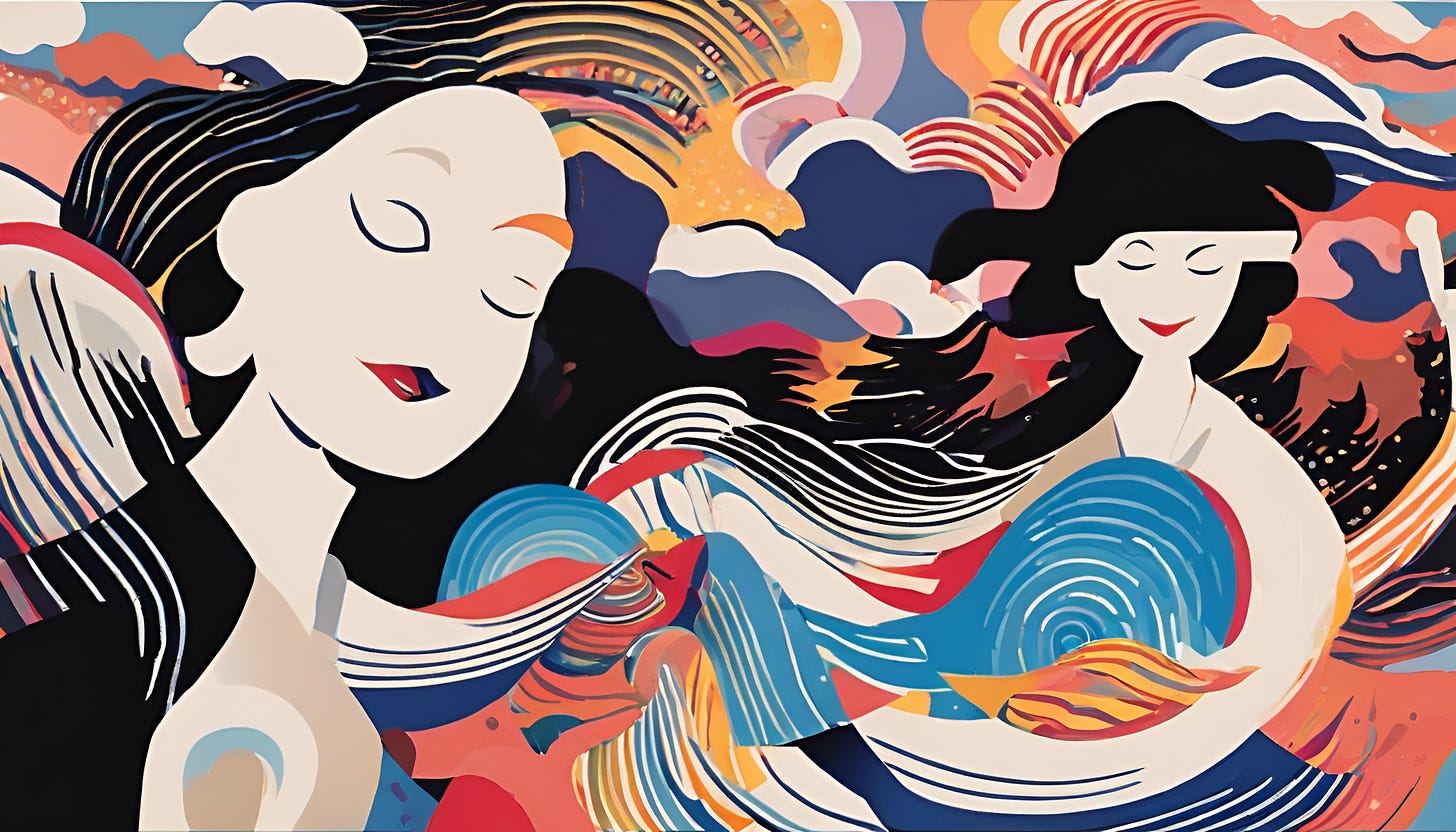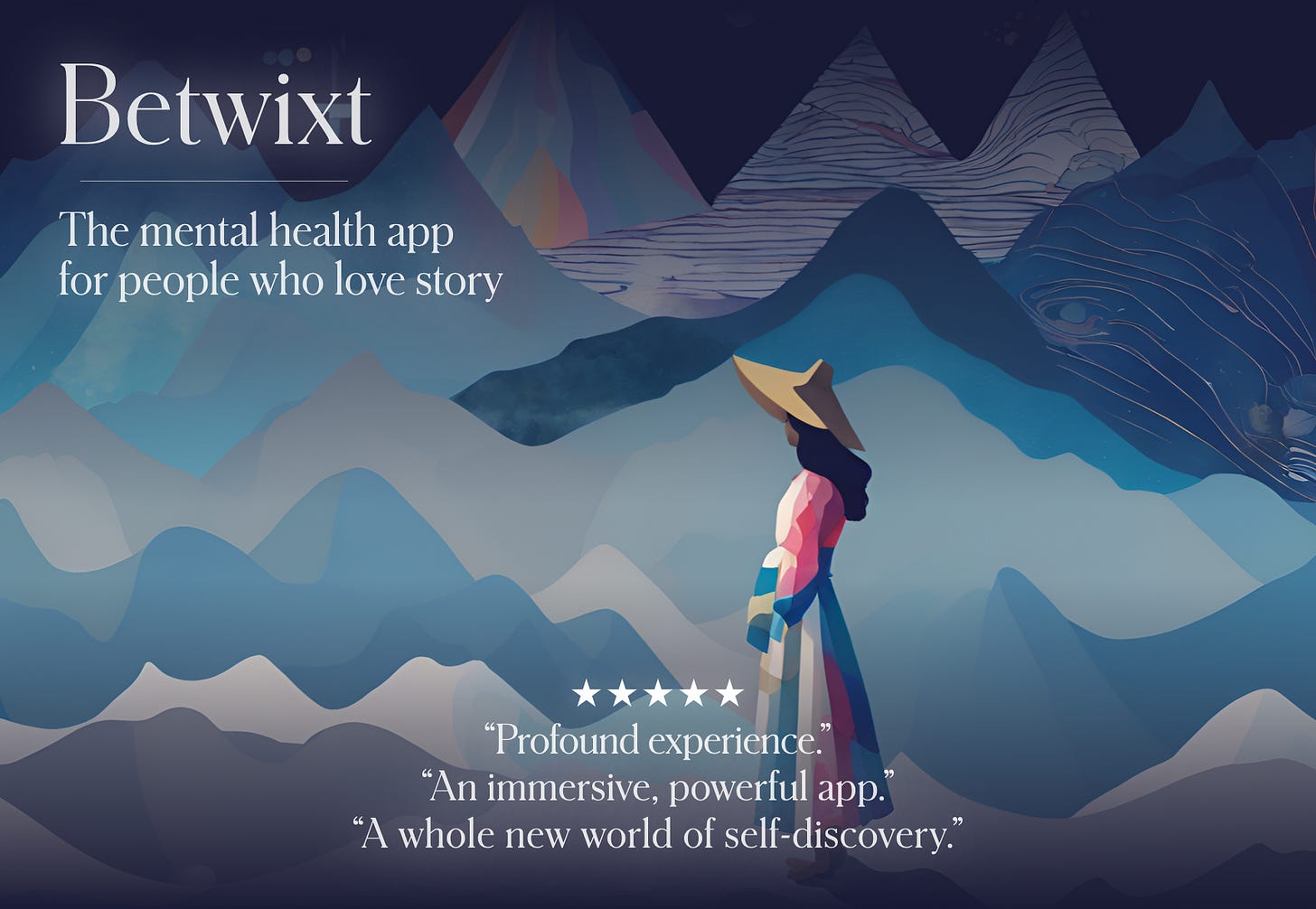Mental health tech is broken. Can play fix it?
Could mindful entertainment be the next wave of wellness tech?
Amid a raging mental health crisis, apps and practices like mindfulness hold an undeniable promise. They’re scalable, affordable and always available from the comfort of your own sofa. There are just two problems: most of these apps, it turns out, lack both solid evidence that they work and an appeal for people to use them.
Mental health apps: the drab reality
97% of users abandon a wellbeing app in the first two weeks, while half the studies done on Calm and Headspace show no positive effects of daily use. Multi-year research across 28,000 students has found that mindfulness training did not improve mental health – and one reason, according to the researchers, was that students were not engaged enough to actually practise.
“Many e-mental health programs are overly pedantic, didactic, and cognitively focused,” write Hanneke Scholten and Isabela Granic, two research psychologists pioneering a radical new approach to wellbeing – games. Hanneke and Isabela are co-directing a Canada- and Netherlands-based lab that’s working with artists, programmers and designers to develop and evaluate mental health games backed by science.
“Well-designed applied games are intrinsically motivating, offer a strong sense of agency, and are simply fun. They also provide a compelling virtual playground to not only gain knowledge, but also practice skills.”
The power of interactive narrative
In 2021, Hanneke began working with us on Betwixt – a choose-your-own-adventure app that takes users on a journey of self-exploration. It takes the form of an interactive story that casts you as a lone traveller stranded in the In-Between – a strange dreamlike world that responds to your thoughts and feelings.
We founded Betwixt because we felt that something key was missing in mental health and wellness tech – a compelling creative experience that inspires curiosity and makes you excited to learn about yourself.
So more than three years ago, we teamed up with Natalia Theodoridou, a World Fantasy Award winning author and game designer, to create a fictional world that would captivate users while delivering wellbeing benefits almost as a side effect.
We’d heard people describe self-care as a chore. For neurodivergent users, especially, sticking with a wellness app can be close to impossible and the common advice – to just keep practising – can feel patronising, not to mention unhelpful.
So we said to ourselves “let’s go make it epic.”
Many users told us that they came for the story and ended up hooked on the self-insights. As creators, we were thrilled because narrative and play are not only engaging, they’re also how humans have made sense of themselves for thousands of years.
Bridging the evidence gap
Only about 3% of mental health apps are backed by research, most of it conducted by insiders, whose financial stake in those apps could bias the results. With Betwixt, by contrast, we opted for an independent study, one that was also a randomised controlled trial, the gold standard in evidence-based research.
In 2021, we approached Hanneke for help to assess the app’s effects on mental health. We wanted to set a higher bar in an industry that was rife with promises for anxiety-free flourishing, but egregiously scant on evidence.
Hanneke and a graduate student of hers, Leah Masselink, designed and conducted the study between October 2021 and May 2022. 580 people took part, with participants divided into two groups: one group played a portion of Betwixt for two weeks at their own pace while another received no intervention. The participants had before and after measures taken of their levels of depression, anxiety, stress, and other data.
The results, while still awaiting peer review, showed that the Betwixt group achieved significant reductions in anxiety and stress, both going from moderate to normal levels after just two weeks of engagement with the app. The non-Betwixt group, meanwhile, saw no clinical change in anxiety and a smaller decrease in stress levels.
Neuroplasticity through play
While the ability to engage users may explain some of Betwixt’s mental health effects, there’s another factor we believe underlies its benefits: the power of play. According to neuroscientist Dr. Andrew Huberman, play is the best known tool for neuroplasticity – or the brain’s ability to rewire itself in response to experience.
Play creates a low-stakes environment that enables us to explore new possibilities in a way we wouldn’t dare to in real life, and this exploration enhances our creativity, makes us more flexible decision-makers, broadens our perspectives and stretches our emotional range. Children at play are not merely having fun; they’re learning new social skills, rehearsing for and internalising adult life.
Every week we hear from users who’ve been exposed to analytical styles of therapy and found it helpful but inadequate. Rationally, they understand the maladaptive thinking patterns spurring negative emotions and behaviours, but understanding the problem doesn’t necessarily solve it.
Realising what’s wrong doesn’t automatically lead to change. We learn best experientially, not in a didactic way. And play is a great vehicle for embodying learning, for embedding change.
In Betwixt, you aren’t simply taking in information and self-reflecting; you’re acting out a new story, bringing in your creativity and imagination, and actively reconstructing your inner narrative. And this can be transformative.
We remember one user who created an embodied form for his crippling self-doubt – a bison he called Doubt. Now anytime his social anxiety flares up, he tells himself “it’s just my woolly, slightly overprotective friend being worried about me.” By turning his self-doubt into a friendly creature he could picture and address made it easier for him to deal with what was previously a nebulous, overwhelming emotion that would defy his grasp.
One of the most crucial things we’ve learned on our journey as creators is that when you carve out a safe, playful space around personal problems, something magical happens. You’re transported to another world and that allows you to see your life in a whole new way and to realise that there’s always a better story waiting for you if the old one has outlived its usefulness.
Thank you for reading!
We’re Hazel (ex boxer, therapist and author) and Ellie (ex psychology science writer). We left our jobs to build an interactive narrative app for self-awareness and emotion regulation (Betwixt), which you can try on Android here and on iOS here.








Mhmmm... I can see how giving users an interactive, playful, empowering experience can take mindfulness “work” into a higher dimension.
Years ago I tried meditation and it simply didn’t work for me. Instead I found writing to be quite effective.
All of life is an experiment!
Congrats Hazel and Ellie on your collaborative creation. V. Awesome!
I have just completed the 11 chapters and have found Betwixt IMMENSLEY helpful. Many thanks for creating it to enable us to see things differently and to explore opportunities to change within the Betwixt world. I have loved both the process and the changes it has brought to me. THANK YOU!